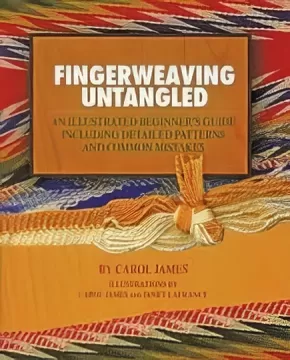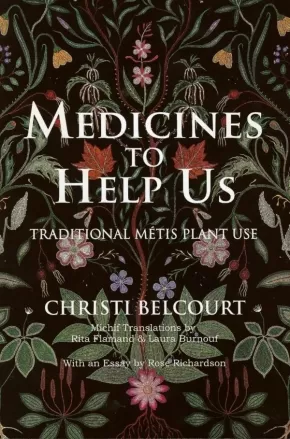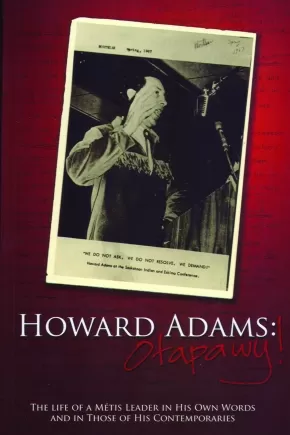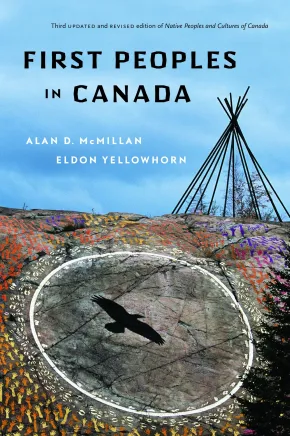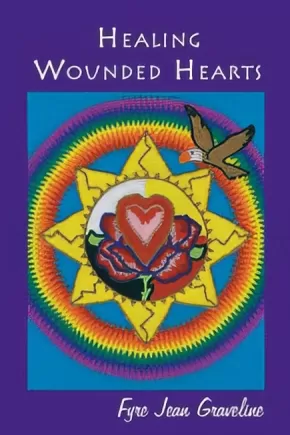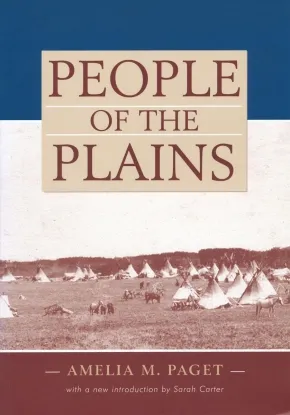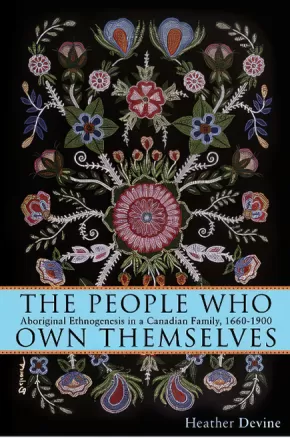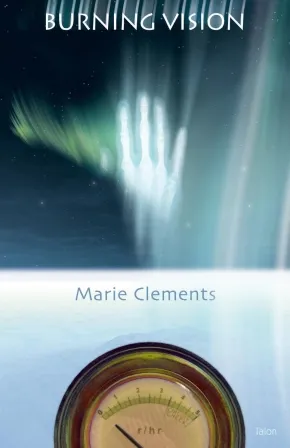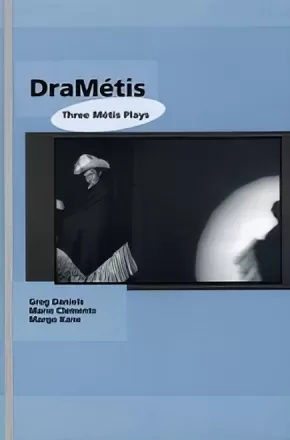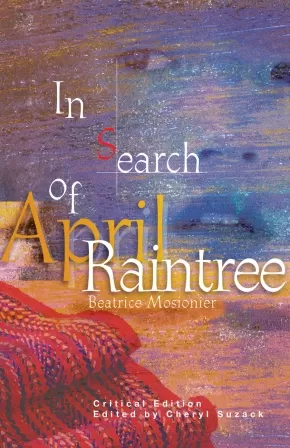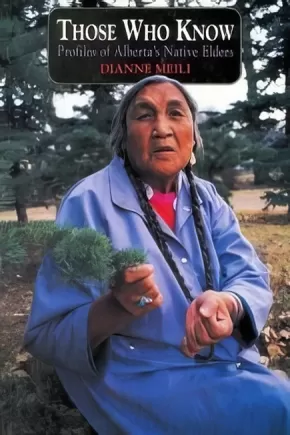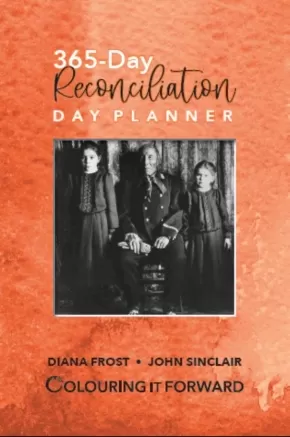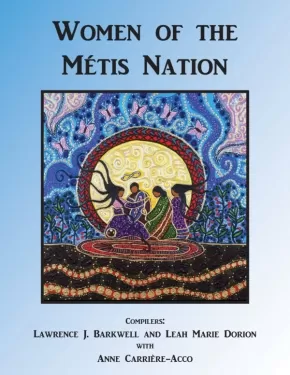
Métis
196
-
209
of
209 Results;
Sort By
Go To
of 14
Fingerweaving Untangled (3 in stock) - ON SALE!
$19.50 $24.95
Format:
Paperback
ISBN / Barcode: 9780978469504
Synopsis:
Synopsis:
This publication is a welcome addition to the literature on the ancient craft of fingerweaving. Carol James, an accomplished Winnipeg weaver and teacher, has dedicated over 20 years to the art. Her knowledge and sash reproductions are based on the detailed study of historical artifacts and are housed in various heritage institutions such as the Manitoba Museum and the Musee de Saint-Boniface.
Medicines to Help Us: Traditional Métis Plant Use
$25.00
Artists:
Text Content Territories:
Indigenous Canadian; Métis;
ISBN / Barcode: 9780920915790B
Synopsis:
Synopsis:
Based on Métis artist Christi Belcourt’s painting “Medicines to Help Us,” this innovative and vibrant resource honours the centuries-old healing traditions of Métis women. With contributions from Métis Elders Rose Richardson and Olive Whitford, as well as key Michif phrases and terminology, Medicines to Help Us is the most accessible resource relating to Métis healing traditions produced to date.
Educator Information
This resource guide does not include the study prints referred to on the back cover and within the book.
Michif Translators: Laura Burnoff and Rita Flamand
Elder Validation: Rose Richardson
Format: Book Only - English, with plant names in Michif, Nehiyawewin (Cree), and Anishinaabemowin (Ojibway)
Fingerweaving Basics
$33.95
Format:
Paperback
Text Content Territories:
Indigenous American; Native American;
ISBN / Barcode: 9781929572083
Synopsis:
Synopsis:
Fingerweaving has been practiced by Native Americans for centuries. It requires no sophisticated loom, only the nimble hands of the weaver. Each technique is presented in detail. The instructions are simple and clearly written, and each step is illustrated with color drawings that make the different threads easy to identify. Includes a color photo of each finished weaving. The approach used here makes this craft much more accessible to amateurs who may have wanted to try it but may have been turned off by the complexity of other books on the subject. Several variations are given for chevron stitch, lightning pattern, arrowhead pattern, bead accents, and fringe.
Howard Adams: Otapawy!: The Life of a Metis Leader in His Own Words and in Those of His Contemporaries
$6.00
Editors:
Format:
Paperback
Text Content Territories:
Indigenous Canadian; Métis;
ISBN / Barcode: 0-920915-74-4
Synopsis:
Synopsis:
Passionate and engaging, Howard Adams: OTAPAWY! is an immense contribution to our knowledge of modern Métis political consciousness and activism. In addition to being Howard Adams’ own record of his remarkable life, the book also contains many contributions by those who were touched by him as a friend, colleague, mentor, activist, political leader, teacher, and scholar.
Augmented by an interactive CD-ROM containing dozens of photographs and documents relating to Howard Adams’ life and work.
Educator Information
Grade Level: Secondary/Post Secondary/Adult
Additional Information
310 Pages | Nonfiction
First Peoples in Canada
$29.95
Format:
Paperback
Text Content Territories:
Indigenous Canadian; First Nations; Inuit; Métis;
Grade Levels: 12; University/College;
ISBN / Barcode: 9781553650539
Synopsis:
Synopsis:
Since Native Peoples and Cultures of Canada was first published in 1988, its two editions have sold some 30,000 copies, and it is widely used as the basic text in colleges and universities across the country.
Now retitled, this comprehensive book still provides an overview of all the Aboriginal groups in Canada. Incorporating the latest research in anthropology, archaeology, ethnography and history, this new edition describes traditional ways of life, traces cultural changes that resulted from contacts with the Europeans, and examines the controversial issues of land claims and self-government that now affect Aboriginal societies.
Most importantly, this generously illustrated edition incorporates a Nativist perspective in the analysis of Aboriginal cultures.
Additional Information
400 pages | 6.00" x 9.00" | Paperback
Healing Wounded Hearts
$29.00
Format:
Paperback
Text Content Territories:
Indigenous Canadian; Métis;
ISBN / Barcode: 9781552661420
Synopsis:
Synopsis:
Healing Wounded Hearts brings together stories, poems and artwork that illustrate the struggles and strengths that Fyre Jean has, as a Métis Woman, living everyday in intersecting, parallel, sometimes colliding, socio-cultural realities. Baring her Heart and Soul, she shares personal, painful, spiritual discoveries of how life and worlds work, through Stories that have grown her into who she is. Through a blend of original research, reflective journals and creative use of dialogue, people, places, times, events, beings come alive. Simultaneously Traditional and Experimental, Factual and Fictional, her word choice and placement foreground questions of Authority, Power and Privilege. Fyre Jean is a wordsmith who bends and shapes languages, to make Truth, to Transform, to Move herself and her readers from one Place, Condition, Reality, to another. Healing Wounded Hearts is a process, a flow, a Journey. When you open this book, you open a Doorway to Healing. Be prepared to experience her worlds—personal and political, academic and artistic, humorous and tragic. You will be enlightened, inspired, moved, surprised into new ways of Seeing, Believing, Being. A must read for social activists, academics, artists, helpers and those on a Healing Journey.
People of the Plains
$14.95
Format:
Paperback
Text Content Territories:
Indigenous Canadian; First Nations; Anishinaabeg; Ojibway; Saulteaux; Cree (Nehiyawak); Plains Cree; Métis;
ISBN / Barcode: 9780889771598
Synopsis:
Synopsis:
Amelia McLean Paget was born in 1867 at Fort Simpson, In what is now the Northwest Territories. Her father, William McLean, was a Scot involved in the fur trade and her mother, Helen Murray, belonged to an illustrious Métis famly which had been active in the fur trade for generations. Amelia's life spanned some of the most tumultuous events in the West, including the disappearance of the buffalo, the North-West Resistance, and the establishment of the reserve system. She had a more sympathetic appreciation of Aboriginal culture than is to found in many of her contemporaries. In People of the Plains (first published in 1909), she records her observations of the customs, beliefs, and lifestyles of the Plains Cree and Saulteaux among whom she lived. She died in Ottawa in 1922.
Additional Information
78 pages | 6.75" x 9.75" | Paperback
The People Who Own Themselves: Aboriginal Ethnogenesis in a Canadian Family, 1660-1900
$39.95
Format:
Paperback
Text Content Territories:
Indigenous Canadian; Métis;
Grade Levels: University/College;
ISBN / Barcode: 9781552386606
Synopsis:
Synopsis:
The search for a Métis identity and what constitutes that identity is a key issue facing many Aboriginals of mixed ancestry today.
The People Who Own Themselves: Aboriginal Ethnogenesis in a Canadian Family, 1660-1900 reconstructs 250 years of Desjarlais family history across a substantial area of North America, from colonial Louisiana, the St. Louis, Missouri, region, and the American Southwest to Red River and Central Alberta. In the course of tracing the Desjarlais family, social, economic, and political factors influencing the development of various Aboriginal ethnic identities are discussed. With intriguing details about Desjarlais family members, this book offers new, original insights into the 1885 Northwest Rebellion, focusing on kinship as a motivating factor in the outcome of events. With a unique how-to appendix for Métis genealogical reconstruction, this book will be of interest to Métis wanting to research their own genealogy and to scholars engaged in the reconstruction of Métis ethnic identity.
Additional Information
358 pages | 6.00" x 9.00" | Paperback
Burning Vision
$17.95
Format:
Paperback
Text Content Territories:
Indigenous Canadian; First Nations; Dene; Métis;
Reading Level: N/A
ISBN / Barcode: 9780889224728
Synopsis:
Synopsis:
Marie Clements’s play sears a dramatic swath through the reactionary identity politics of race, gender and class, using the penetrating yellow-white light, the false sun of uranium and radium, derived from a coal black rock known as pitchblende, as a metaphor for the invisible, malignant evils everywhere poisoning our relationship to the earth and to each other.
Burning Vision unmasks both the great lies of the imperialist power-elite (telling the miners they are digging for a substance to “cure cancer” while secretly using it to build the atomic bombs that devastated Hiroshima and Nagasaki); and the seemingly small rationalizations and accommodations people of all cultures construct to make their personal circumstances yield the greatest benefit to themselves for the least amount of effort or change on their part. It is also a scathing attack on the “public apology” as yet another mask, as a manipulative device, which always seeks to conceal the maintenance and furtherance of the self-interest of its wearer.
Clements’s powerful visual sets and soundscapes contain curtains of flames which at times assume the bodies of a chorus passing its remote judgment, devoid of both pity and fear, on the action: a merciless indictment of the cross-cultural, buried worm of avarice and self-interest hidden within the terrorism of the push to “go with the times,” to accept the iconography of a reality defined, contextualized and illuminated by others.
Marie Clements writes, or, perhaps more accurately, composes, with an urbane, incisive and sophisticated intellect deeply rooted in the particulars of her place, time and history.
Cast of five women and 12 men.
Reviews
“Clements covers a lot of ground, but she knows her territory and travels it deftly… Clements dips her pen in numerous cross-cultural references, from cherry trees to caribou to Hank Williams, and writes with a magical irreverence that highlights this tragic saga. Her rich poetic style evokes parallels between Japanese and native myths – not unlike Yeats’ Noh Plays where Celtic and Japanese myths meld – finding connection through ancient truths and the power of the soil, except in this case the soil is literally explosive.”– Quill & Quire
"I remember reading this play in my undergrad and being shocked and impressed at how much theatre could do and be. This was a far cry from the kitchen sink dramas I had already (naively) decided formed the bulk of contemporary Canadian theatre. Far from the confines of the kitchen, Burning Vision travels across the globe and through time, offering a complex portrait of interconnectedness, shared trauma, and shared responsibility for healing. Fifteen years after it premiered in Vancouver and the subject matter is still, sadly, “of the moment” as we wrestle with climate change and isolationist politics. Requiring a diverse cast to fill parts such as the Dene Seer and Tokyo Rose, and requiring a flexible space so it can be staged in the round, there is no doubt that this play can be challenging. But it is challenging in the best sense of the term, in that it is full of possibilities and invites creative minds in to tackle the important challenges of our day. - Lisa, from PledgeProject
Additional Information
128 pages | 5.50" x 8.50" | Paperback
DraMétis: Three Métis Plays
$19.95
Format:
Paperback
Text Content Territories:
Indigenous Canadian; Métis;
ISBN / Barcode: 9780919441941
Synopsis:
Synopsis:
DraMétis is the first anthology to focus on the emerging discipline of Métis drama. The pieces have all been previously produced and highlight the diversity of Métis drama being written and performed in Canada.
In Search of April Raintree: Critical Edition
$26.00
Editors:
Format:
Paperback
Text Content Territories:
Indigenous Canadian; Métis;
ISBN / Barcode: 9781894110433
Synopsis:
Synopsis:
Memories. Some memories are elusive, fleeting, like a butterfly that touches down and is free until it is caught. Others are haunting. You'd rather forget them, but they won't be forgotten. And some are always there. No matter where you are, they are there, too.
In this moving story of legacy and reclamation, two young sisters are taken from their home and family. Powerless in a broken system, April and Cheryl are separated and placed in different foster homes. Despite the distance, they remain close, even as their decisions threaten to divide them emotionally, culturally, and geographically. As one sister embraces her Métis identity, the other tries to leave it behind.
Will the sisters’ bond survive as they struggle to make their way in a society that is often indifferent, hostile, and violent?
The first edition of In Search of April Raintree, published in 1984, has since touched many generations of readers, becoming a Canadian school classic. In this edition, ten critical essays accompany one of the best-known texts by an Indigenous author in Canada.
Educator Information
In this edition, ten critical essays accompany the text.
A 40th-anniversary edition of In Search of April Raintree is available here: In Search of April Raintree: 40th Anniversary Edition
A version written specifically for students in grades 9-12 that does not contain the graphic scene that is contained in this original version is available here: April Raintree
Additional Information
343 pages | 5.50" x 8.50" | Paperback | Critical Edition
Those Who Know: Profiles of Alberta's Native Elders
$24.95
Format:
Paperback
Text Content Territories:
Indigenous Canadian;
ISBN / Barcode: 9780920897034
Synopsis:
Synopsis:
The reader will experience first-hand the personality, characteristics, and sometimes remote environment of these healers, visionaries, storytellers, and spiritualists through Dianne Meili's faithful re-telling of the interviews she conducted with each during the two years she spent traveling throughout Alberta.
Suggested Grades: 10-12
ABPBC
Reconciliation Day Planner (7 in Stock)
$42.00
Artists:
Format:
Paperback
Text Content Territories:
Indigenous Canadian;
ISBN / Barcode: 21-DF-046-1
Synopsis:
Synopsis:
Colouring It Forward is honoured to have collaborated with Cree Elder John Sinclair in the design of this day planner that is dedicated to fostering Truth and Reconciliation. They are also grateful to Ashley Barclay for her artwork, to Crystal Fraser and Sara Komarnisky for allowing us to share some of their recommended Acts of Reconciliation.
Would you like to learn more about Indigenous issues, and culture to participate more fully in reconciliation?
This day planner offers you:
- Answers to questions about culture, issues and spirituality by Cree elder John Sinclair
- suggested ReconciliActions
- important Indigenous dates to observe
- update on the TRC's 94 Calls to Action: where the government is at with implementing the Calls to Action
- 3 colouring images by Metis artist Ashley Barclay
- 365 undated pages to record your meetings, your daily gratitude and your reconciliation plans!
- Each day planner sold will provide a donation to Piitoayis Family School
Women of the Métis Nation
$30.00
Editors:
Text Content Territories:
Indigenous Canadian; Métis;
Reading Level: N/A
ISBN / Barcode: n/a
Synopsis:
Synopsis:
Métis Women are the heart and soul of the Métis people. Without them, there would be no Métis Nation. They are the strength behind our families, communities, and places of work. In the past, their kinship networks established where people settled and whom people married. Sovereign within their familial and community roles, they were the healers, the stewards of the land and its resources, the keepers of Indigenous knowledge, and the midwives who kept the Métis Nation nurtured, educated, and sustained. This tradition has continued into the present as Métis women have moved past their domestic and familial spheres into areas such as social advocacy, the arts, sports, law, post-secondary education, and entrepreneurship. Containing hundreds of biographies, Women of the Métis Nation is an ambitious role model book that documents more than 200 years of trailblazing Métis women.
Additional Information
235 Pages | Nonfiction
Sort By
Go To
of 14

